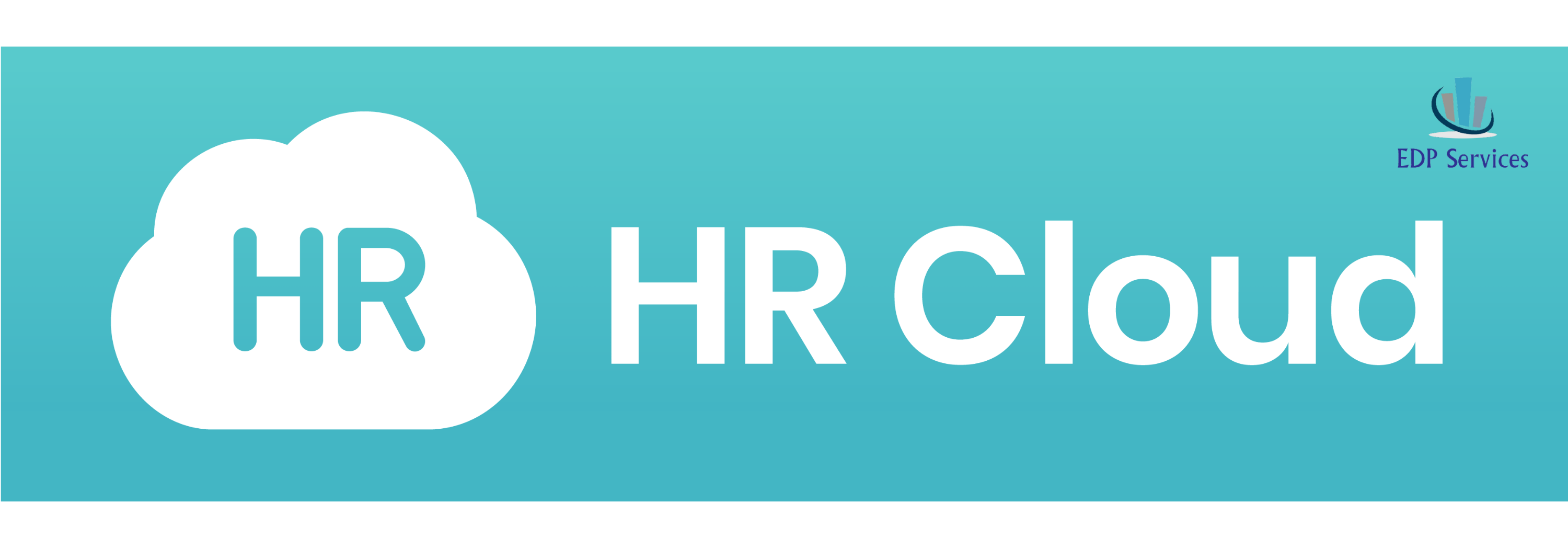
Effective payroll management is still a major challenge in India's fast-paced business environment. Companies frequently struggle with outdated systems when it comes to managing a diverse workforce and complying with complex tax regulations. A modern solution is provided by EDPS (edps.in), which provides cloud-based payroll solutions tailored for Indian companies. This article examines how EDPS's tools maintain operations' adaptability and security while streamlining payroll administration, guaranteeing compliance, and fostering expansion.
The Evolution of Payroll Management in India
India's economic transformation is reflected in its payroll management journey. Businesses used to rely on handwritten salary slips, physical attendance registers, and manual ledger entries decades ago. These techniques were labor-intensive, prone to mistakes, and unsuitable for an expanding workforce. Payroll became a logistical nightmare as businesses grew due to the difficulty of complying with various state-specific labor laws, tax slabs, and statutory compliances like PF, ESI, and TDS.
Excel sheets and standalone software, two simple digital tools that decreased manual labor but lacked adaptability, were introduced in the 2000s. Payrolls from multiple locations, real-time updates, and frequent regulatory changes were all challenges for these systems. For example, manual intervention was necessary to update GST components or tax rates, which increased the risk of noncompliance. Instead of concentrating on strategic objectives, HR teams spent hours cross-checking data.
An important turning point was the introduction of cloud HR solutions. By automating end-to-end procedures, platforms such as EDPS payroll solved legacy issues. Businesses were able to centralize data, automate salary calculations, and produce accurate compliance reports due to cloud technology. Cloud systems, as opposed to inflexible on-premise software, provided scalability, making it simple for businesses to handle payroll for temporary staff or remote teams.
Indian companies today place a high value on accuracy, speed, and compliance with the law. Cloud-based payroll management tools are now essential due to dynamic labor reforms and digital adoption initiatives like the Wage Code. The solutions offered by EDPS, which are customized for the regulatory environment of India, guarantee smooth updates for professional tax variations, PF contributions, and GST. Transparency and security are further improved by employee self-service portals, real-time dashboards, and encrypted data storage.
Moving to cloud HR solutions is essential for modern businesses to survive, not just to increase efficiency. Businesses can manage payroll complexity and remain prepared for the future with the help of EDPS.
What Makes Cloud-Based Payroll Systems Indispensable?
Effective payroll management is now a strategic requirement in India's dynamic business environment. The demands of scalability, workforce diversity, and compliance complexity overwhelm traditional payroll systems, which rely on confused software or manual procedures. Presenting cloud HR solutions, which are revolutionary for companies looking for cost-effectiveness, accuracy, and agility.
Payroll management for Indian businesses requires balancing statutory requirements (PF, ESI, TDS), changing labor laws, and regional tax laws (such as differences in professional tax between states). The inability of legacy systems to quickly adjust to these changes frequently results in mistakes, late filings, and fines. These obstacles are removed by EDPS payroll, which is based on cloud technology and automates updates for wage code changes, GST rates, and EPFO guidelines. An important benefit in India's regulatory environment is that this guarantees compliance without the need for manual oversight.
Another essential component of cloud-based payroll systems is real-time accessibility. HR managers and staff require immediate access to pay slips, tax statements, and attendance records from any location as remote work and distributed teams become more common. The self-service portals and mobile-friendly dashboards provided by EDPS's platform enable employees to download Form 16 or update personal information on their own. This promotes transparency while lessening the administrative load on HR
The necessity of cloud HR solutions is further highlighted by scalability. Pay-as-you-go business models help startups and SMEs, which are frequently limited by infrastructure and budget, by removing upfront IT expenses. Cloud systems can easily scale to handle larger datasets and multi-location payrolls as companies hire seasonal workers or expand to new states. For example, the EDPS solution adjusts to different workforce sizes without sacrificing accuracy or speed.
Savings on infrastructure are only one aspect of cost efficiency. Payroll processing times can be reduced by up to 70% with automated systems, freeing up HR teams to focus on employee engagement or talent development. Error-free computations also reduce the financial risk of overpayments or non-compliance fines, which are frequent problems for Indian companies
Security is still a major worry, particularly when it comes to private employee information. Role-based access controls, bank-grade encryption, and frequent vulnerability audits are how EDPS payroll handles this. These steps ensure compliance with laws like the impending DPDP Act and are in line with India's growing emphasis on data privacy.
In conclusion, because cloud-based payroll systems combine scalability, accessibility, and compliance into one platform, they are essential. Adopting EDPS payroll is a step toward future-ready operations for Indian companies hoping to prosper in a cutthroat market.
Key Features of EDPS Payroll Solutions
By fusing innovation and value, EDPS's cloud HR solutions revolutionize payroll management for Indian companies. This is how to:
-
Automated, Error-Free Calculations:
The platform complies with Indian labor laws while managing complex pay structures, such as bonuses, overtime, and deductions. It accurately computes taxes (TDS, GST) and statutory contributions (PF, ESI, PT) automatically, removing the manual errors that are frequently present in traditional systems. -
Dynamic Compliance Management:
The EDPS payroll smoothly incorporates India's constantly evolving regulations. The system ensures that returns, Form 16, and challans are filed on time by automatically updating tax slabs, EPFO thresholds, and wage code amendments. For companies that operate across states, this reduces legal risks. -
Employee Self-Service Portal:
Through an easy-to-use portal, employees can view pay slips, apply for leaves, update their PAN and Aadhaar information, and monitor tax savings. This lessens the administrative burden on HR and gives workers more authority, particularly in remote or hybrid work environments. -
Multi-State Payroll Handling:
From Karnataka's labor welfare fund to Maharashtra's professional tax, EDPS easily adapts to regional differences. Businesses that operate throughout India can use a single dashboard to manage payroll cycles and location-specific compliances. -
Real-Time Analytics & Reporting:
Create real-time reports on tax obligations, payroll expenses, and attendance. MIS dashboards that can be customized assist CFOs and HR teams in making data-driven decisions, which are essential for growing companies in cutthroat marketplaces. -
Bank-Grade Security:
In light of India's changing data privacy regulations, EDPS makes sure sensitive employee information is kept safe through encrypted data storage, role-based access, and frequent audits. - Scalability & Cost Efficiency:
As a business grows, the cloud-based model adapts to support both startups and large corporations. It is perfect for SMEs looking for ways to optimize their budgets as it does not require costly hardware.
EDPS payroll turns payroll from a backend chore into a strategic asset for Indian businesses by combining automation, compliance, and user-centric design.
Tackling Indian Payroll Compliance with EDPS
Businesses find it difficult to navigate India's complex payroll compliance environment, which is characterized by changing tax laws, regional mandates, and statutory deadlines. This complexity is made simpler by EDPS payroll's clever automation. To ensure accurate computations, the platform's cloud HR solutions automatically update with the most recent EPFO rates, and state-specific professional tax laws. For example, TDS deductions smoothly comply to the updated income tax thresholds, and ESI contributions automatically adapt to the updated wage ceilings.
In order to avoid penalties, timely filings are essential. To cut down on delays, EDPS payroll creates and electronically submits challans, Form 24Q, and ESI returns. Additionally, the system keeps audit-ready records for ten years, which is essential for Indian companies that must comply with strict labor audits.
While multi-state operations introduce additional layers of complexity, EDPS simplifies regional compliance. Whether it is overseeing Delhi's contract worker regulations or Karnataka's labor welfare fund, the platform consolidates requirements into a single dashboard.
Businesses are able to concentrate on expansion as EDPS payroll turns compliance from a liability into a competitive advantage by automating statutory workflows.
Enhancing HR Efficiency with Integrated Cloud Solutions
HR departments in India's diverse business environment must manage scattered systems that reduce efficiency. Payroll management, accounting software, performance tools, and attendance tracking are all integrated into EDPS payroll's unified cloud HR solutions. By eliminating manual data entry, this seamless connectivity guarantees accuracy in real time. Administrative tasks are reduced by 50%, for instance, when attendance logs are synchronized with EDPS payroll and leave balances and overtime pay are automatically adjusted.
For Indian companies running multi-state operations or remote teams, this kind of integration is essential. HR receives a centralized dashboard to track payroll expenses, employee performance, and compliance—essential for managing local labor laws or tax variances. From talent retention tactics to budget allocations, real-time analytics enable data-driven decision-making.
Scalability comes naturally to expanding SMEs and businesses. Without requiring system changes, EDPS payroll can adjust to seasonal hires, workforce growth, or new state registrations. HR transitions from routine duties to strategic roles by removing boundaries, which increases operational agility and employee engagement. Integrated cloud HR solutions are more than just effective in a cutthroat market; they are revolutionary.
Security: A Non-Negotiable Priority
Protecting payroll data is essential in India's digital-first economy. When sensitive information like PAN, Aadhaar, and bank accounts are compromised, there may be financial fraud, harm to one's reputation, or legal repercussions. Security is given top priority in EDPS Payroll's cloud HR solutions, guaranteeing that companies adhere to India's strict data protection regulations while expediting payroll administration.
For both in-transit and at-rest data, the platform uses bank-grade encryption. Information is protected from unwanted access whether it is being transmitted or stored in employee records. This is essential for Indian companies that manage payrolls for multiple states in order to stop leaks among decentralized teams.
Another line of defense is provided by role-based access controls. HR administrators have the ability to limit system access to particular users. For example, they can prevent external edits to tax configurations or limit managers' ability to approve payroll. Every login and transaction is tracked by audit trails, which guarantee accountability in accordance with regulations such as the soon-to-be Digital Personal Data Protection (DPDP) Act.
Complying with local laws is a must for Indian businesses. By following the RBI's data localization guidelines, EDPS payroll makes sure that all payroll data is stored on servers located in India. Furthermore, by enabling employees to safely access pay slips without the need for third-party email exchanges, the platform's self-service portal reduces the risk of phishing attacks.
Payroll from a compliance hassle to a reliable, future-ready procedure is transformed by EDPS by integrating security into every layer of its cloud HR solutions.
Scalability for Growing Businesses
Payroll management must be flexible for Indian companies growing from startups to large corporations. The cloud HR solutions from EDPS get rid of inflexible systems that falter under the stress of growth. The platform easily adjusts to pan-India office setups, seasonal hiring spikes, and workforce expansions—all without requiring expensive infrastructure upgrades.
While businesses use unified workflows to manage thousands of employees across states, startups benefit from modular pricing, which only pays for active employees. Whether onboarding teams are in Gujarat or Tamil Nadu, EDPS payroll automatically adapts to local tax laws, labor codes, and compliance requirements. In order to match costs with demand, seasonal industries such as agriculture and e-commerce can quickly scale payroll up or down.
The smooth integration with current accounting, ERP, or attendance systems is guaranteed by the cloud-based architecture. EDPS payroll maintains accuracy and speed as companies expand by hiring remote workers, freelancers, and contractors. Bottlenecks during mergers and acquisitions, which are frequent in India's dynamic market, are avoided with real-time data synchronization.
With payroll operations future-proofed, EDPS enables companies to expand with confidence, knowing that their cloud HR solutions will advance with each milestone.
Why Indian Businesses Choose EDPS
- Cost Savings: Cut IT expenses and stay out of trouble for noncompliance.
- Time Efficiency: Reduce the time it takes to process payroll by up to 70%.
- User-Friendly Interface: Minimal training required for HR teams.
- Localized Support: Indian payroll nuances are understood by EDPS's customer service.
Conclusion
The cloud-based payroll solutions from EDPS are revolutionizing employee management for Indian companies. EDPS enables businesses to concentrate on expansion by automating time-consuming processes, guaranteeing legal compliance, and providing unparalleled scalability. Adopting intelligent payroll management is not merely a choice; it is a necessity in a time when success is determined by agility.
Explore EDPS’s tailored solutions at https://www.edps.in/ and transform your payroll processes today.





